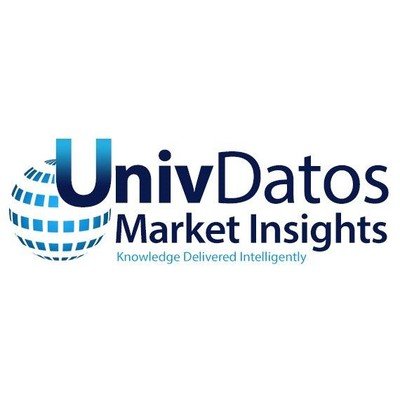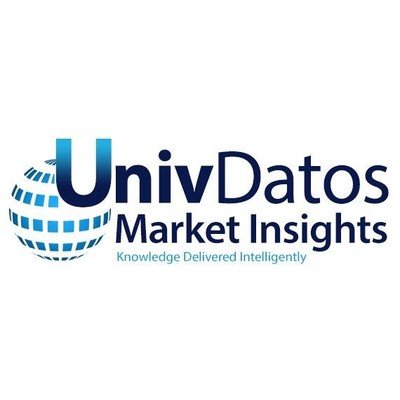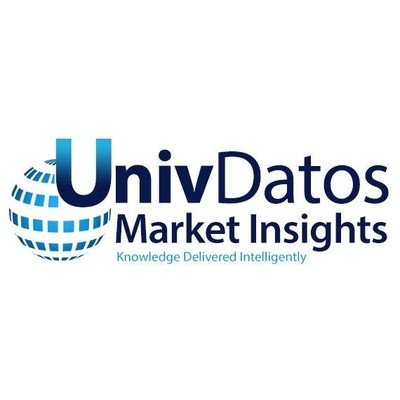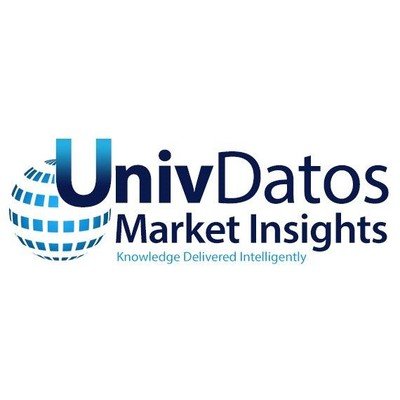Herbal Supplements Market Assessment Covering Growth Factors and Upcoming Trends

Research report presented by UnivDatos, Emphasis on Source (Leaves, Roots, Bark, Seeds, Others), Formulation (Tablets, Capsules, Liquid, Powder & Granules, Others), Application (Food & beverages, Pharmaceuticals, Personal Care), End-User (Adult Women, Adult Men, Pediatric, Baby Boomers), Distribution Channel (Herbal Store, Drug store, Supermarket/Hypermarket, Others) and Geographical analysis (key regions and countries).
As per the research report, Global Herbal Supplements Market was valued at US$ 70.42 billion in 2019 and is anticipated to reach US$ 110.26 billion by 2026 displaying elevated CAGR of 6.7% over the forecast period (2020-2026). Herbal supplements are the dietary supplements that are extracted from plants or parts of plants for medicinal and therapeutic purposes. Herbal Supplements are used for the prevention and management of various diseases and ailments and are called photomedicine. These supplements work as natural alternatives for hormone replacement therapy, as plants have been used in medicinal purposes for thousands of years. They offer natural ways to improve prostate health, cognitive function and brain health, and connective and joint tissue health. These can be liquids or solids in the form of tablets, capsules, soft gels, gelcaps, or powders. Rising concerns regarding the adverse effects of synthetically derived nutraceuticals are projected to augment the demand for herbal supplements. Increasing spending on health and wellness and rising disposable income levels, especially in the emerging nations, are expected to augment the demand for herbal supplements globally. The preference for buying such herbal products as compared to luxury goods among the consumers is also portraying a dramatic surge. Herbal supplements help maintain cholesterol levels, regulate the digestive system, and reduce stress. Thus, increasing awareness about the health benefits offered by these products is expected to fuel market development.
For complete research, request for Sample of the report browse through – https://univdatos.com/request_form/form/316
List of common herbal supplements and their uses
Aloe Vera: used topically for burns, psoriasis and osteoarthritis. Used in the oral form for digestive issues such as gastritis or constipation.
Black cohosh: used to treat hot flashes, night sweats, vaginal dryness and menopausal symptoms.
Chamomile: used to treat sleeplessness, anxiety, upset stomach, gas and diarrhea. It is also used topically for skin conditions. Caution in people with ragweed allergy.
Echinacea: used to fight cold and flu symptoms.
Flaxseed: used to lower cholesterol. Good source of fiber and omega-3 fatty acids.
Ginko: used to treat memory problems and tinnitus (ringing in the ears). It can be used along with the antidepressant selective serotonin reuptake inhibitors (SSRIs) to enhance sex drive and sexual performance in people who have side effects with antidepressant medications. Caution in people taking blood thinners.
Peppermint oil: used to treat digestion problems such as nausea, indigestion, stomach problems and bowel conditions.
Soy: used to treat menopausal symptoms, memory problems and high cholesterol levels. Organic, whole soy food is preferable to soy supplements and processed soy foods like soy hot dogs.
St. John’s Wort: used to treat depression, anxiety and sleep disorders. NOTE: This herb has many other drug and herb interactions. Consult your healthcare provider before starting this supplement
Tea tree oil: used topically to treat several conditions including, acne, athlete's foot, nail fungus, wounds, infections, lice, oral yeast infection (thrush), cold sores and dandruff.
“Amongst Source, herbal supplements extracted from Roots dominated the market in 2019, with 42.1% share”
Based on the source, the global herbal supplement market is segmented into leaves, roots, bark, and seeds. The popularity of herbal supplements has witnessed a rapid rise accredited to immense health benefits present in natural products. Consumption of these herbal supplements ensures nutritional enrichment in individuals. Herbal supplements extracted from Roots dominated the market in 2019. However, herbal supplements extracted from Leaves are expected to witness the highest CAGR growth of 7.4% during the forecast period 2020-2026.
“Herbal supplements are majorly consumed in the form of Capsules”
Based on formulations, the global herbal supplement market is bifurcated into tablets, capsules, liquid and powder & granules. Herbal supplements help maintain cholesterol levels, regulate the digestive system, and reduce stress. Thus, increasing awareness about the health benefits offered by these products is expected to fuel market development. Herbal supplements are majorly consumed in the form of Capsules. The segment is expected to generate revenue of US$ 35.71 billion by 2026.
“Pharmaceutical’s sector is the largest industrial user of herbal supplements product, followed by F&B and personal care segment”
Based on application, the global herbal supplement market is bifurcated into food & beverages, pharmaceuticals and personal care. Growing inclination towards natural products, increasing health awareness and surging spend on health and wellbeing has catalyzed the growth of the pharmaceutical's herbal supplement market. The segment generated revenue of US$ 33.74 billion in 2019. In addition, the Personal Care segment is expected to witness the highest CAGR growth of 7.2% during the analyzed period.
“Amongst end-users, Adult women dominated the consumption of herbal supplement”
Based on end-user, the global herbal supplement market is classified into adult women, adult men, pediatric and baby boomers. Growing preference for natural products during pregnancy owing to a surge in awareness regarding the therapeutic properties of herbal supplements is one of the key factors that would boost the demand for herbal supplements among adult women. However, a growing elderly population would help the Baby Boomers end-user segment to witness the highest CAGR growth of 7.4% during the analyzed period.
“In 2019, herbal supplements were majorly sold through Drug Stores, followed by online channel”
Based on the distribution channel, the global herbal supplement market is bifurcated into herbal stores, drug stores, supermarket/hypermarket and online channels. Preference for e-commerce platforms with respect to ease of availability over conventional distribution channels for buying herbal supplements has risen tremendously due to cost-effectiveness and better convenience leading to the fastest growth over the analyzed period.
“Asia-Pacific dominated the global herbal supplements market in 2019, with 38.9% share”
For a deep-dive analysis of the industry, detailed country-level analysis was conducted for major regions/countries including North America (US, Canada, Rest of North America), Europe (Germany, UK, France, Italy, Spain, Rest of Europe), Asia-Pacific (China, Japan, India, South Korea, Australia, Rest of Asia-Pacific) and Rest of World (Brazil, South Africa, Others). It has been estimated by WHO that 80% of the population of some Asian countries use herbal medicine for some health purposes. Increasing health awareness with respect to diet, growing mental disorders, and surging sedentary lifestyles has tremendously bolstered the Asia Pacific herbal supplements market.
Competitive Landscape-Top 10 Market Players
Jarrow Formulas, Inc., Solgar Inc., Herbalife International of America, Inc., Ricola AG, Bio-Botanica Inc., Blackmores Ltd, Himalaya Drug Company, Rainbow Light Nutritional Systems, Arizona Natural Products, Willmar Schwabe GmbH & Co. KG are some of the prominent players operating in the global herbal supplement industry. Several M&A’s along with partnerships have been undertaken by these players to facilitate customers with hi-tech and innovative products.
Customization Options:
UMI understands that you may have your own business need, hence we also provide fully customized solutions to clients. The Global Herbal Supplements Market can be customized to the country level or any other market segment.

Clinical Nutrition Market - Industry Analysis, size, Share and Upcoming Trends (2020-2026)
- the global Clinical Nutrition Market was valued at US$ 43.5 billion in 2019 and is anticipated to reach US$ 59.84 billion by 2026

US Agriculture Drone Market - Industry Analysis, size, Share and Upcoming Trends (2019-2025)
- US Agriculture Drone Market Worth US$ 144.8 million - UnivDatos Industry Analysis- by Size, Share, Growth, Trends, and Forecast 2019-2025

Antifreeze Proteins Market Report, Size 2021 Global Industry Trends, Segments, Competitors Strategy
- Global Antifreeze Proteins Market is expected to grow at a robust pace of 32.4% from 2021-2027 to reach US$ 26.2 million by 2027.

Looks here the best agency in Hamburg English translator
- An interpreter is a character whose job is to translate what someone is saying into a different language. Aristide spoke to the press by an interpreter. Th